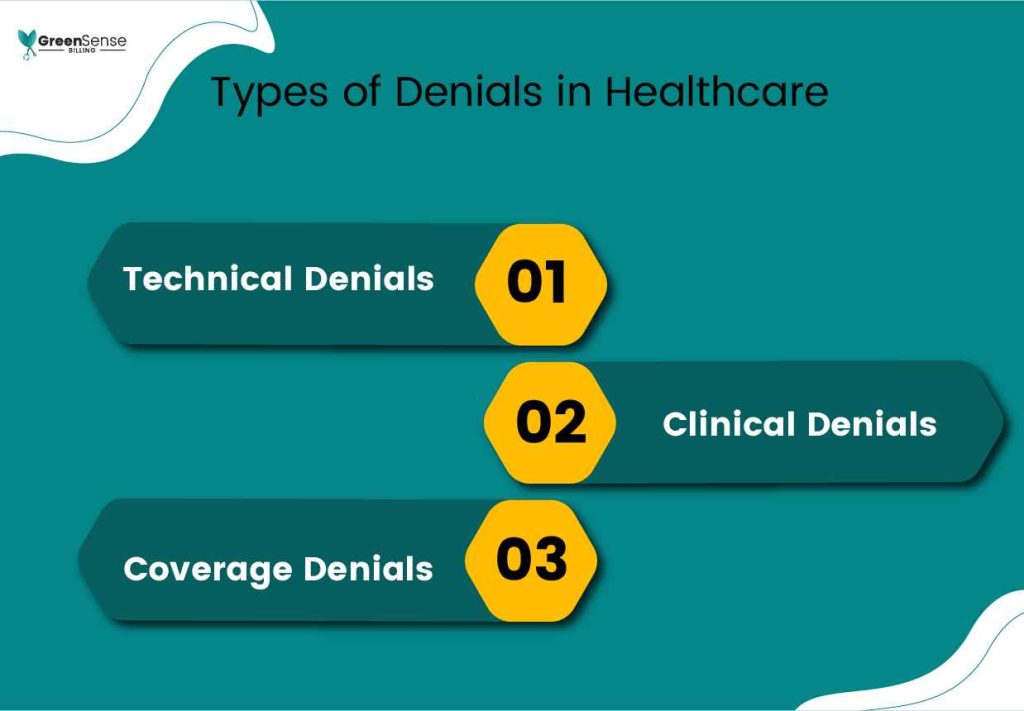It is shocking how denials have impacted nearly every healthcare provider in the US, causing huge financial losses. The complex world of denial management in medical billing plays an important role in addressing this challenge.
In this article, we will understand denial management, explore the various types of denials healthcare providers encounter, and shed light on the reasons behind these claim denials. Join us on this informative journey as we find out the secrets of denial management and help healthcare providers to navigate the complicated landscape of claims processing more effectively.
Understanding Denial Management in Healthcare and Their Impact
The Denial management process is a fundamental process that identifies, analyzes, and resolves claim denials on time. The consequences of denials can be dire, leading to financial setbacks, disrupted cash flow, and strained provider-patient relationships. However, with effective denial management strategies in place, stakeholders can minimize losses, enhance revenue cycles, and optimize their overall operational efficiency.
Types of Denials in Medical Billing

To resolve denials successfully, it is essential to understand the different types of denials in medical billing that can occur. Let’s take a closer look at the main categories:
-
Technical Denials
These denials arise from administrative or technical errors, such as missing information, incorrect patient demographics, or incomplete documentation.
Examples include missing signatures, outdated insurance coverage, or invalid procedure codes.
-
Clinical Denials
Clinical denials occur when the medical necessity of a procedure or service is questioned. Insurance providers may think the treatment is unnecessary or does not meet their coverage criteria.
To avoid clinical denials, providers must ensure clear and comprehensive documentation.
-
Coverage Denials
Coverage denials occur when the insurance policy does not provide coverage for a specific treatment, service, or medication. This could happen if the procedure is considered experimental, investigational, or falls outside the scope of what the policy covers. Therefore, it is important to become familiar with the terms and limitations of your patient’s insurance policy to prevent coverage denials.
By understanding what is covered and what is not, you can make informed decisions and avoid unexpected denials that may lead to out-of-pocket expenses.
Common Reasons Behind Claim Denials
Understanding why claims get denied is essential for healthcare providers to address them effectively. If they don’t, providers may face financial losses and operational inefficiencies.

Some common reasons for claim denials are as follows:
-
Inaccurate or Incomplete Information:
Denials may occur due to missing or incorrect details, such as patient demographics or procedural codes. Double-checking information before submitting claims can prevent unnecessary denials.
-
Lack of Medical Necessity Documentation:
Insufficient documentation supporting the medical necessity of services rendered can result in denials. Thoroughly documenting the need for procedures is essential to prevent these denials.
-
Coding Errors
Mistakes in assigning appropriate procedure and diagnosis codes can also lead to denials. Hence, staying up-to-date with coding guidelines and ensuring accurate code selection is essential. It helps prevent coding-related denials.
-
Out-of-Network Providers
Claims are also denied or subjected to higher out-of-pocket costs if a healthcare provider is not in-network with a patient’s insurance plan. Therefore, It is recommended to verify network participation and obtain prior authorization. This results in preventing denials as well.
-
Timely Filing
We all know insurance companies often have strict deadlines for claim submission. Failing to submit claims within the specified time frame can result in denials most of the time. Hence, prompt and efficient claims processing is vital to avoid such issues.
Types of Denial Management in Medical Billing
Denial management in medical billing has two main types: proactive and reactive.
In proactive denial management, providers foresee and prevent denials by ensuring accurate documentation, adhering to coding guidelines, and conducting regular audits. They also offer staff training for compliance.

While reactive denial management focuses on addressing denials after they occur. Providers analyze patterns, identify root causes, and take corrective actions. They appeal denials and communicate effectively with payers to resolve issues promptly.
These strategies help healthcare providers optimize revenue cycles and navigate the complexities of medical billing. By being proactive and reactive, they can mitigate denials and improve overall financial performance.
Proactive Denial Management: The Key to Success
Implementing effective denial management strategies is crucial for healthcare providers to navigate the complex landscape of claim denials. By closely monitoring denials, identifying denial patterns, and implementing corrective measures, stakeholders can enhance claim acceptance rates, reduce denials, and optimize revenue cycles.

This proactive approach ensures timely resolution and improved operational outcomes.
Conclusion
Denial management is a necessary part of the claims process. By understanding the denial types in medical billing and the reasons behind them, healthcare providers can take proactive measures to minimize denials and reduce financial losses. Moreover, this also helps providers ensure a seamless claims experience to get reimbursed on time.
If you have any further questions or concerns regarding denial management or denial management services, feel free to reach out to us. Together, let’s conquer the challenges of denials and forge a path toward improved revenue cycles and better patient care.



















